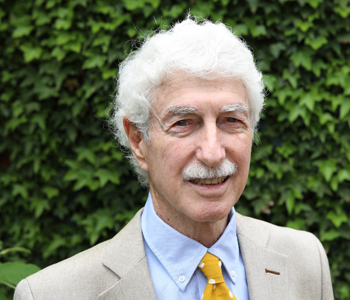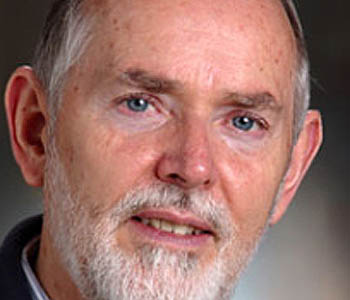Todd McGowan
Emancipation After Hegel: Achieving a Contradictory Revolution
Columbia University Press
288 pages, 6.2 x 9.2 inches
ISBN 978 0231192705
Emancipation After Hegel provides an introduction to Hegel that reimagines Hegel’s project and at the same time engages in contemporary political debates. When I started thinking about the book, I had a sense that Hegel had been completely misunderstood both in the popular reception of his thought and among many leading interpreters. I also saw political possibility in Hegel’s key idea—that we find satisfaction in the act of sustaining contradictions, not in solving them. In the book, I argue that the attempt to sustain contradiction is the driving force of Hegel’s philosophy. I admit that when we first hear this, it doesn’t make much sense: to sustain contradiction would just be contradictory and thus doomed to undermine itself.
But my claim in the book is that Hegel reverses our typical judgment on contradiction. Contradiction is not what we try to avoid but what we seek because it provokes our desire. We don’t look for what confirms our way of thinking but for what contradicts it. Once we overcome a particular contradiction, we no longer find it interesting. Even scientists only continue to experiment on problems as long as the possibility for contradiction exists. Once this possibility vanishes, the problem ceases to interest them. Hegel claims that our desire searches for contradiction because if it ever overcame contradiction desire itself would cease to exist. This is why absolute knowledge for Hegel is the knowledge that we cannot ever overcome contradiction.
The implications are important not just for philosophy but also for our own psyches and for all our political projects. What pushes thought forward is not an effort to solve contradictions or problems but to deepen them. Instead of thinking about how to overcome contradictions and be rid of them once and for all, we have to think about how to sustain them if we are to find a way through our current political dead ends. In this sense, the problem with contemporary capitalism is that its contradictions are too evident and too facile, not that they threaten to undermine the system.
As Hegel sees it, thought itself is contradictory because it requires the involvement of non-identity within every assertion of identity. I cannot identify anything without at the same time identifying what it is not. This is especially clear in the politics of immigration around the world. The identity of the citizen forms through the negation of the immigrant: a citizen is not an immigrant. But this negation is part of the identity, not just something external to it. Citizenship would be meaningless without this negation of the non-citizen. There is no way to be free of what is other or different in the formation of an identity. An identity free of negation would be completely immobile, isolated, and finally unidentifiable. It is only through the negation or through the introduction of otherness that identity becomes what it is. This is the contradiction that informs all identity.
By placing contradiction at the heart of Hegel’s philosophy, we begin to see the political importance of this philosophy. If contradiction undermines every identity, there can be no substantial authority that can operate without itself being contradictory. In this way, the recognition of contradiction as foundational provides definitive proof of the actuality of freedom. Hegel’s philosophy draws a clear line from reconciling ourselves with the inevitability of contradiction to recognizing the fact of emancipation. The key to a political catastrophe such as Stalinism lies in the attempt to overcome contradiction, which is why sustaining contradiction is vital. Only by avoiding the attempt to overcome contradiction do we ward off political catastrophes like Stalin’s Reign of Terror.
From the first time I tried to read Hegel, I remember how intimidating I found his language and yet how enticing his ideas were to me. As a result, I felt the need to translate Hegel’s ideas into my own idiom just so I could make it clear to myself. Even though Emancipation After Hegel is a book on Hegel, it is also an act of translation, continuing what I began during my first reading, except this time I’m also translating Hegel for other people as well as for myself. In the book, I strive for absolute clarity above all else, so that there could be no confusion about my claims or about Hegel’s. I often use an example from a film or from my personal life to clarify a Hegelian concept, and then I follow this with an interpretation of a similar move that Hegel makes in his philosophical texts. My effort is to make Hegel readable and to further the case for his philosophy at the same time. This involves speaking to two widely disparate audiences, but I myself am in both of those audiences. I’m at once someone trying to get a foothold in Hegel’s philosophy and someone who has spent decades reading and studying it.
While doing quite a bit of background reading on Hegel (and digesting the many introductions that have been written, as well as most of the criticisms), I discovered that the image of Hegel as a progressive philosopher is almost ubiquitous. From the perspective of this doxa, his philosophy tells the story of history progressing toward a better future from a humbler past. This is true among both his followers and his opponents. The clichéd version of the progressive image reduces his philosophy to the movement from thesis to antithesis to synthesis. According to this schema, the famous Hegelian synthesis solves the contradiction between the thesis and the antithesis. It grounds the opposition in a higher reality that cancels, transcends, and uplifts it (which is the triple meaning of the famous untranslatable Hegelian word Aufhebung).
But the problem is that these terms—thesis, antithesis, synthesis—never appear in any of Hegel’s writings. The cliché has served to hide the fact that Hegel sees no possible escape from the necessity of contradiction. There is no Hegelian synthesis at all. But if we take this basic misunderstanding as our starting point for thinking about his philosophy, we can actually see what he’s up to by reversing it. This is one of the wagers of the book. Hegel’s philosophy does trace out various lines of thought until they reach a point of contradiction, but he does not then seek a way of solving the contradiction. Instead, when he resolves one contradiction, he turns to another line of thinking that remains contradictory in order to keep the relationship to contradiction alive, until he reaches the point where contradiction appears as intractable. This is the point that he calls absolute knowing. It is the point, he believes, when we reconcile ourselves to the ultimate intractability of contradiction.
The first chapter of Emancipation After Hegel lays out the argument of the entire book in detail, so this is a good starting point. Starting at the beginning would give readers a good sense of what the whole book is up to. But who wants to start at the beginning?
I think that my favorite chapter is the third, entitled “What Hegel Means When He Says Vernunft.” Even though this title sounds uninviting and not like something one would thumb through for laughs, I feel like this chapter is the most important because it overturns the received wisdom about Hegel’s supposed conformism. In this sense, there is an interesting political dimension to it. The idea that Hegel tries to justify the ruling status quo took hold soon after his death and has been the common understanding of him ever since then. This chapter tries to demolish this interpretation of Hegel’s political position by showing that his most apparently conformist statement is actually one of his most radical.
The most damning piece of evidence for Hegel’s conformism is his famous statement from the preface to his last work, The Philosophy of Right. There he proclaims, “What is rational is actual, and what is actual is rational.” The fact that a monarch ruled Prussia at the time and that Hegel had a prestigious university post led people to see this statement as an explicit endorsement of the hierarchical status quo. It certainly seemed far removed from the radicality of someone like Marx, who was concerned with changing the world rather than simply discovering the rationality of what is.
But everything depends on what Hegel means by the rational (which is Vernunft in German). If by rational he means that it is justified and unquestionable, then this becomes a completely regressive statement. But this is not at all what Hegel means. He uses the term rational in precisely the same sense that Immanuel Kant uses it when he writes the Critique of Pure Reason. For Kant, reason is the faculty we use that leads us into contradictions, which is why he wants to critique its use. When we reason, we think beyond the bounds of possible experience and consider questions that we can’t answer, such as whether the world has a beginning or not. Kant shies away from these questions because he wants our philosophy to avoid running into insoluble contradictions. Hegel does not shy away from them.
Starting from Kant’s conception of reason, when Hegel claims that the actual is rational, he is making the audacious claim that the actual is really contradictory. Far from insinuating that the status quo is justified, this statement demands that we see the contradiction in even the most logical social structure imaginable. The status quo is contradictory and must be confronted as such. Hegel’s statement about the rationality of the actual demands that we look for the site of contradiction within the ruling order, whatever it might be. At the point of apparent conformism, he evinces his radicality. This I most treasure about Hegel as a thinker.
The final two chapters of the book deal with the political implications of Hegel’s thought. This is the part of the book that goes beyond any interpretation of Hegel’s thought and envisions how this thought might impact our thinking about politics. I don’t think that Hegel has all the answers for us politically—he’s not a magic eight ball—but he does provide an approach that has dramatic implications for how we orient ourselves with regard to political problems.
Even though Hegel died when Marx was in his teens, Hegel’s philosophy nonetheless offers a political corrective to Marxism that can be valuable for us today, as Marxism has again arisen as an alternative to ubiquitous capitalism. We all know that Marxist attempts at restructuring society in the twentieth century went horribly awry. I think Hegel’s philosophy points to a theoretical reason why that was so, which is what makes taking stock of him so important in our times.
Hegel doesn’t really have much to offer as a critic of capitalism, although he does make the point that massive increases in wealth will necessarily correspond to widespread poverty. I think Hegel basically must defer to Marx’s critique of capitalism and his revelation of capitalism’s fundamental contradictions. What Hegel adds, however, is the insight that our political response to capitalism cannot aim at eliminating contradiction altogether, as it is for Marx. If our response tries to do this, something akin to the gulag or the killing fields will inevitably develop. In our theorizing about politics and in our political practice, the attempt to sustain contradiction must remain in the foreground. I see this as Hegel’s fundamental political lesson and one that retains its importance in the contemporary world.
Furthermore, Hegel’s philosophy of contradiction has important implications for how we think about identity, one of the key political questions today. He sees that every assertion of identity involves itself in non-identity. There is no pure identity. As identity movements rage throughout the world, it is important to consider how fraught the question of identity is. Identity only becomes what it is through a differentiation that relies on what it excludes. It needs what it rejects in order to be what it is. Thus, all identity claims involve a disavowal of what they negate in order to create an identity.
What Hegel offers in the place of identity is universality. He is a firm believer in universal political struggle. He grounds universal values such as freedom and equality not in some vision of human essence or in natural law but rather in contradiction itself. Because of the contradiction that undoes every identity, we are all free. Because of the contradiction that undermines the highest authority, we are all equal. Hegel provides a way of thinking about universality that removes it from dominance and imperialism. Universality connects us through what we aren’t, not what we are. Hegel holds up universality as the only way to combat the retreat into the isolated trap of identity.




We don't put paywalls. We don't distract you with ads. We don't sell your data.
Please help to keep this running!